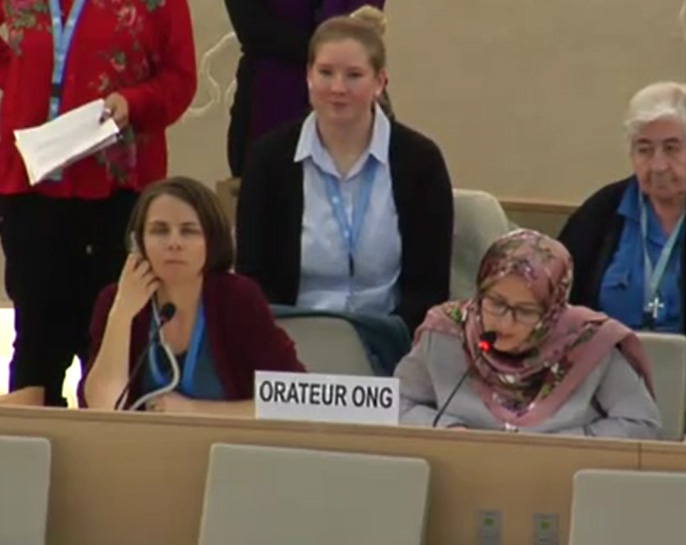
The European Saudi Organisation for Human Rights condemned Saudi violations against special needs individuals from reaching judicial justice. In a joint statement with Americans for Democracy and Human Rights in Bahrain organization, the latter noted that Saudi Arabia do not hesitate in implementing death penalties against disabled people.
In its statement, on March 7th, 2018; which was submitted by the researcher in ESOHR Duaa Dhaini, cleared that in January 2016 among a mass execution of 47 prisoners, Saudi Arabia has executed the mentally ill Abdul Aziz Al Towailee, after unfair procedures. Furthermore, she also noted that in July 2017, Saudi Arabia ratified the final death sentence of the disabled young protestor Munir Adam based on accusations written by the investigators themselves, which he was forced to sign before the judge, without even hearing or reading it.
ESOHR critically questioned the discrepancy in Saudi Arabia’s speeches presented before the Human Rights Council, where they claim that the kingdom only carries out executions for the ‘most serious of crimes’. Munir Adam’s charges did not include any serious charges according to the international definition of what constitutes the ‘most serious’ crimes. However, despite this, Munir may be killed by beheading via the sword at any moment.
Moreover, ESOHR confirmed that the “disabled” Munir Adam is one of the victims of Saudi government repression of protesters against the bad human rights conditions. Likewise, Munir joined protests during the Arab Spring in early 2011, and was detained on April 8, 2012.
Concerning the details of Munir case, ESOHR pointed out that the Saudi government started torturing and humiliating him since the first moment of his detention. He was initially tortured by “alflaka” at the police station in Qatif, and then tortured once again in the prison of Dammam, which is considered one of the most cruelest prisons in Saudi Arabia.
Additionally, ESOHR affirmed that he was left for long and repeated periods in solitary confinement, and tortured via electroshocks, deprived from sleep, prolonged periods of standings and beaten with sticks, electric wires, rubber and plastic rods, in addition to all of that he was deprived from eating, drinking, and using toilettes. He also suffered from kicks and slaps which led to a complete loss of hearing after it was partial and to poor eyesight.
Despite that, Munir Adam didn’t get his right to appoint a lawyer but only after his trial began which was significantly insufficient; the sentence was ratified.
The ESOHR resulted by referring to the growing concern over Munir’s life after he was sentenced to death in a flagrantly injustice trial. Also, ESOHR asked the Special Rapporteur to interfere and call upon the Saudi government to abolish the execution and release him immediately.
